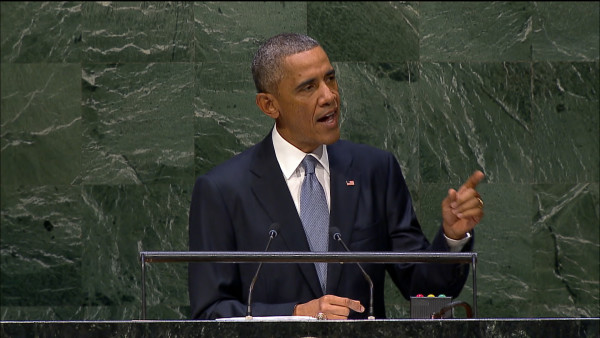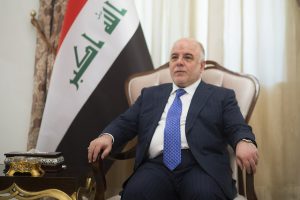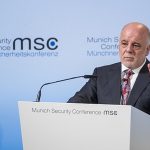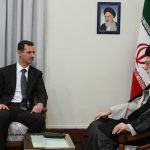by Emile Nakhleh
In a speech before the United Nations on Wednesday, President Barack Obama offered a rhetorically eloquent roadmap on how to fight the Islamic State (ISIL or ISIS) in Iraq and Syria. He called on Muslim youth to reject the extremist ideology of ISIS and al-Qaeda and work toward a more promising future. Obama repeated the mantra, which we heard from former President George W. Bush, that “the United States is not and never will be at war with Islam.”
The group that calls itself the Islamic State must be defeated, but is the counter-terrorism roadmap, which the president laid out in his 40-minute speech, sufficient to defeat the extremist ideology of ISIS, Boko Haram, or al-Qaeda? Despite American and Western efforts to degrade and defeat these deadly and blood-thirsty groups for almost two decades, radical groups continue to sprout in Sunni Muslim societies.
Obama also urged the Arab Muslim world to reject sectarian proxy wars, promote human rights, and empower their people, including women, to help move their societies forward. He again stated that the situation in Gaza and the West Bank is unsustainable and urged the international community to strive for the implementation of the two-state solution.
The president did not, however, adequately address Muslim youth in Western societies who could be susceptible for recruitment by ISIS, al-Qaeda, or other terrorist organizations.
Contradictions
Arab publics will likely see glaring inconsistencies in the president’s speech between his rhetoric and actual policies. They would most likely view much of what he said, especially his global counter-terrorism strategy against ISIS, as another version of America’s war on Islam. Arabs will also see much hypocrisy in the president’s speech on the issue of human rights and civil society.
Although fighting a perceived common enemy, it’s a sad spectacle to see the United States, a champion of human rights, liberty, and justice, cozy up to Saudi Arabia, Egypt, and Bahrain, serial violators of human rights and infamous practitioners of repression. It’s even more hypocritical when Arab citizens realize that some of these so-called partners have often spread an ideology not much different from what ISIS preaches.
These three regimes in particular have emasculated their civil society and engaged in illegal imprisonment, sham trials, and groundless convictions. They banned political parties—Islamic and secular—and silenced civil society institutions as well as prohibited peaceful protests.
The president praised the role of free press, yet al-Jazeera journalists are languishing in Egyptian jails without any viable justification. The Egyptian government continues to hold thousands of political prisoners without indictments or trials.
In addressing the youth in Muslim countries, Obama told them “Where a genuine civil society is allowed to flourish, then you can dramatically expand the alternatives to terror.”
What implications should Arab Muslim youth draw from the president’s invocation of the virtues of civil society when they see that genuine civil society is not “allowed to flourish” in their societies? Do Arab Muslim youth see real “alternatives to terror” when their regimes deny them the most basic human rights and freedoms?
The Sisi regime has illegally destroyed the Muslim Brotherhood, and Saudi Arabia and Bahrain have used the specter of ugly sectarianism to destroy the opposition. They openly and viciously engage in sectarian conflicts even though the president stated that religious sectarianism underpins regional instability.
Human Rights Watch and other distinguished organizations sent a letter to Obama asking him to raise the egregious human rights violations in Egypt when he met with Sisi in New York. Yet in his speech UN speech Wednesday, Egyptian Field Marshall Abdel Fattah el-Sisi expressed hope that the United States would tolerate his atrocious human rights record in the name of fighting ISIS.
Obama should not give Sisi and other Arab autocrats a pass when it comes to their repression and human rights violations just because they joined the American engineered “coalition of the willing” against ISIS.
New Realities
Regardless of how the air campaign against the Islamic State goes, American policymakers will have to begin a serious review of a different Middle East than the one President Barak Obama inherited when he took office. Many of the articles that have been written about ISIS on Lobelog and elsewhere warned about the outcome of this war once the dust settles.
Critics correctly wondered whether opinion writers and experts could go beyond “warning” and suggest a course of policy that could be debated and possibly implemented. If the United States “breaks” the Arab world by forming an anti-ISIS ephemeral coalition of Sunni Arab autocrats, Washington will have to “own” what it had broken.
A road map is imperative if a serious conversation is to commence about the future of the Arab Middle East. But not one deeply steeped in counter-terrorism. The Sunni coalition is a picture-perfect graphic for the evening news, especially in the West, but how should the US deal with individual Sunni states in the coalition after the bombings stop and ISIS melts into the population?
As the United States looks beyond today’s air campaign over Syria and Iraq, American policymakers should realize that ISIS is more than a bunch of jihadists roaming the desert and terrorizing innocent civilians. It’s an ideology, a vision, a sophisticated social media operation, and an army with functioning command and control.
Above all, ISIS represents a view of Islam that is not dissimilar to other strict Sunni interpretations of the Muslim faith that could be found across many Muslim countries, from Saudi Arabia to Pakistan. In fact, this narrow-minded, intolerant view of Islam is at the heart of the Wahhabi-Salafi Hanbali doctrine, which Saudi teachers and preachers have spread across the Muslim world for decades.
Nor is this phenomenon unique in the ideological history of Sunni millenarian thinking. From Ibn Taymiyya in the 13th century to Bin Ladin and Zawahiri in the past two decades, different Sunni groups have emerged on the Islamic landscape preaching ISIS-like ideological variations on the theme of resurrecting the “Caliphate” and re-establishing “Dar al-Islam.”
Although the historical lines separating Muslim regions (“Dar al-Islam” or “Abode of Peace”) from non-Muslim regions (“Dar al-Harb” or “Abode of War”) have almost disappeared in recent decades, ISIS, much like al-Qaeda, is calling for re-erecting those lines. Many Salafis in Saudi Arabia are in tune with such thinking.
This is a regressive, backward view, which cannot possibly exist today. Millions of Muslims have immigrated to non-Muslim societies and integrated in those societies to escape this ideology.
If President Obama plans to dedicate the remainder of his term in office to fighting and defeating the Islamic State, he cannot do it by military means alone. He should:
- Tell al-Saud to stop preaching their intolerant doctrine of Islam and revise their textbooks to reflect a new thinking. Saudi and other Muslim scholars should instruct their youth that “jihad” applies to the soul, not to the battlefield.
- Tell Sisi in Egypt to stop his massive human rights violations and allow his youth—men and women—the freedom to pursue their economic and political future without state control. Sisi should also empty his jails of the thousands of political prisoners and invite the Muslim Brotherhood to participate in the political process.
- Tell al-Khalifa in Bahrain to end their sectarian war against the Shia majority and invite opposition parties—secular and Islamic—including al-Wefaq, to participate in the upcoming elections freely and without harassment. Opposition parties should also participate in redrawing the electoral districts before the Nov. 22 elections, which King Hamad has just announced. International observers should be invited to monitor those elections.
- Tell the Israeli government the situation in Gaza and the occupied territories is untenable. Prime Minister Bibi Netanyahu should stop building new settlements and work with the Palestinian national government for a settlement of the conflict. If the US president concludes, like many other scholars in the region, that the two-state solution is no longer workable, he should communicate his view to Netanyahu and Mahmoud Abbas and strongly encourage them to explore other modalities for the two peoples to live together between the river and the sea.
If President Obama does not pursue these tangible policies and use his political capital in this endeavor, his UN speech would soon be forgotten. Degrading and destroying ISIS is possible, but unless Arab regimes move away from autocracy and invest in their peoples’ future, other terrorist groups would emerge.
The American president has over the years given memorable speeches on Muslim world engagement, but unless he pushes for new policies in the region, the Arab Middle East will likely implode with Washington left holding the bag. This is not the legacy President Obama would want to leave behind.






Good post, as well as advice. One problem, western think-mindset-isn’t up to date either vs Islamic. More of the same, same old results. One might also site the existence of these groups, new ones taking the old ones places, created by warmongers who profit by all this nasty business. As for “O” doing anything in the 2 years left of his being P.O.T.U.S., with all the neocons that are running the show in his administration, all trying to outdo each other, success doesn’t appear to be achievable. Looks as though that November will be the telling month, the U.S. elections and the Iranian solution. I wonder what the “Las Vegas” odds for those 2 are?
The problem lies even deeper than that suggested by the author of this article.
The basic underlying problem is religion itself and the uses to which it is put.
In the US and UK, political leaders kow-tow to religious ideologies, organisations and leaders.
Instead, they should be pursuing a strictly secular style of government at home and abroad.
Many of the suggestions above about righting wrongs across the Middle East make sense too.
There may also be other more ancient factors at play, such as the old Persian/Assyrian one.
The breakup of these old empires, like the Greek and Roman ones, still resonates today.
If the West sticks to a secular agenda, then accusations of anti-Islam crusades are hollow.
It did not help when Bush declared a “crusade” – that sort of mentality and speech must end.
I hope “decapitating ISIS” was an unfortunate choice of phrase and not an attempt at black humor.
The sad truth is that young men can always be persuaded to go to war for emotional reasons that have nothing to do with logic. Added to this, the idea of immortality of the soul and the concept of martyrdom appeals to young idealists who lack the maturity and education to be aware of the faulty reasoning behind these ideas. Taking them seriously only reinforces their determination. Mockery and ridicule might be a better response than an escalation of violence.
This article offers sound advise, and a good analysis.of the conflict.
Mike,
One approach you could use is to ask any would-be jihadists you come into contact with if they have ever heard of someone called Osama bin Laden?
Of course, they will say “Yes”.
Then respond, “Oh, good – how many of his sons have become jihadists”?
They will almost certainly not know the answer to the question.
The actual answer is “None”.
If you can provide them with the answer and also ask why they should become jihadists when bin Laden’s sons never did, it will at least provide them with food for thought or reflection.
If push comes to shove, you could also suggest that bin Laden and his sons are bright.
That is why they have never thrown their lives away at any time.
Bib Laden may be dead but – as far as I know – his sons remain very much alive.
Presumably, he never wanted any of his sons to become jihadists – and neither did they.
What should that tell any would-be jihadist?